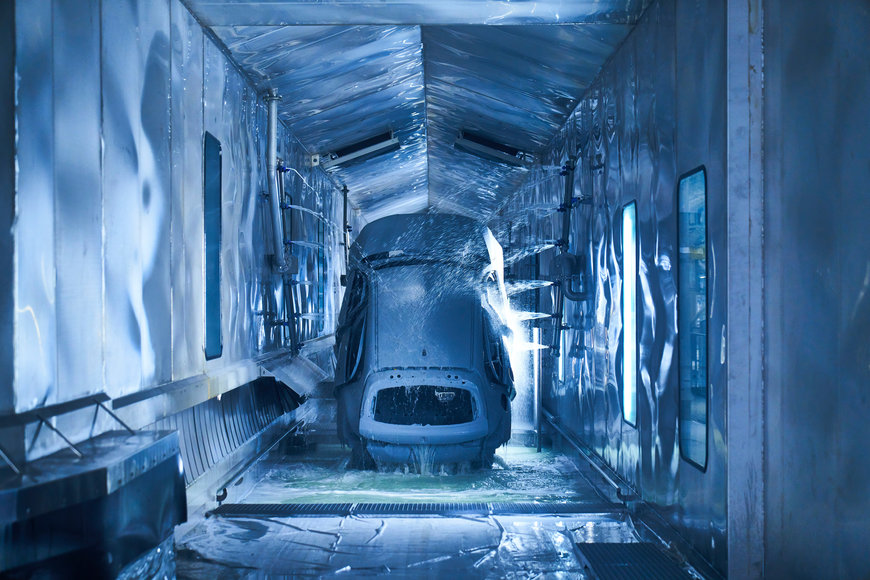www.auto-innovations.net
09
'22
Written on Modified on
BASF News
Renewable Raw materials for automotive coatings
The BMW Group is the first OEM to use BASF paints certified according to the biomass balance approach. Clearcoat and e-coat avoid around 40% of CO2 each.

The BMW Group is the first carmaker to place its trust in more sustainable automotive OEM coatings certified according to BASF’s biomass balance approach. The BMW Group has chosen to use BASF Coatings’ CathoGuard® 800 ReSource e-coat at its plants in Leipzig, Germany, and Rosslyn, South Africa, and the iGloss® matt ReSource clearcoat throughout Europe. Using these more sustainable product versions for vehicle coatings enables CO2 avoidance of around 40% per coating layer; this will reduce the amount of CO2 emitted in the plants by more than 15,000 metric tons by 2030.
“As the largest provider of chemical products to the automotive industry, we are aware of our responsibility to support our customers with innovative, eco-efficient solutions. The biomass balance approach allows us to make our coatings solutions even more sustainable while retaining the same quality. We are delighted that the BMW Group has chosen to play a pioneering role in the automotive industry and that our products play a key part in helping it achieve its ambitious sustainability goals,” said Dr. Markus Kamieth, Member of the Board of Executive Directors of BASF SE.

The matt clearcoat of the new BMW i4 M50 in Frozen Portimao Blue was produced without fossil raw materials and is based on organic waste. (Photo: BMW Group)
The BMW Group produces an average of around 250,000 vehicles every year at its plants in Leipzig and Rosslyn.
As a corrosion protection technology with optimum protection of edges, the CathoGuard 800 e-coat helps millions of cars live longer. Its biomass-balanced version, CathoGuard 800 ReSource, adds a reduced carbon footprint to the e-coat application’s material efficiency, without changing the product’s formulation.
In BASF’s biomass balance approach, renewable raw materials like bio-based naphtha and biomethane from organic waste are used as raw materials when manufacturing primary chemical products and are fed into the production Verbund. The proportion of bio-based raw materials is then arithmetically assigned to certain sales products according to a certified method. This attribution model is comparable with the principle of green electricity. An independent certification confirms that BASF has replaced the quantities of fossil resources required for the biomass-balanced product sold with renewable raw materials.
www.basf.com

